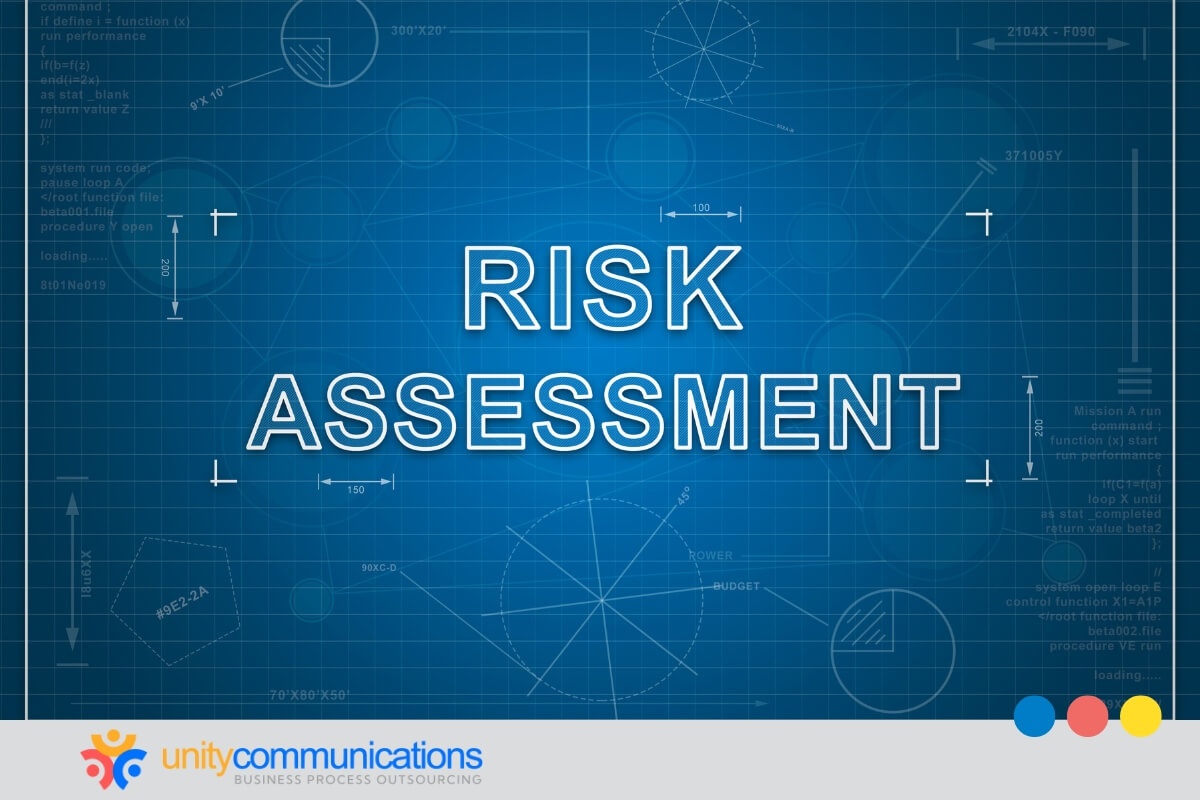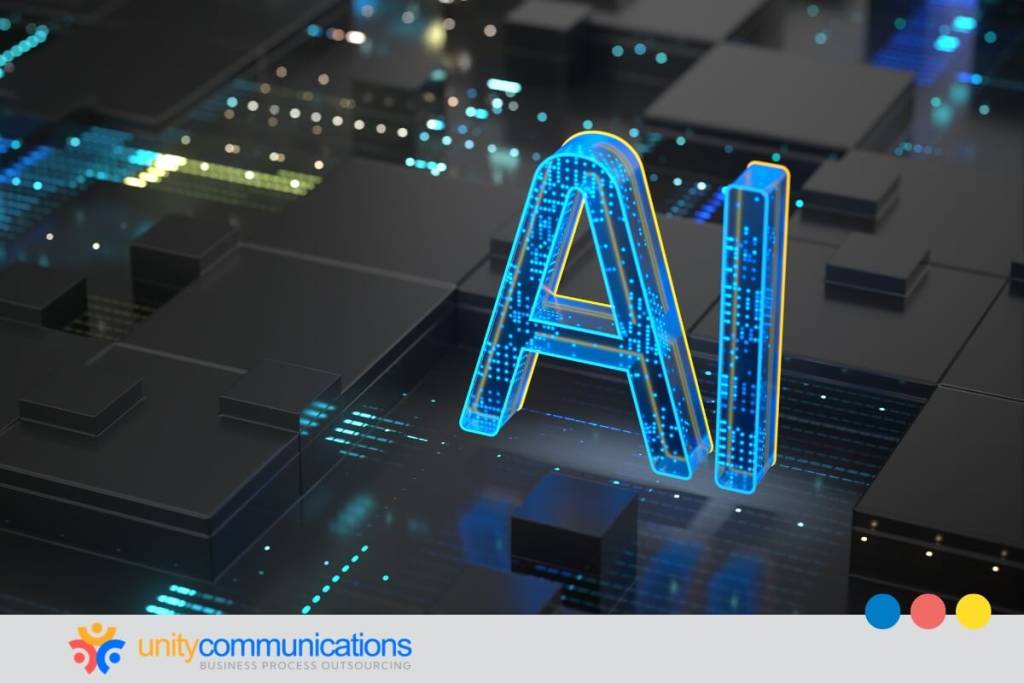Table of Contents
Outsourcing has long been a cornerstone of global business, but how can companies ensure their external teams work as efficiently and collaboratively as in-house staff? The answer lies in artificial intelligence (AI), a game-changer for streamlining operations, boosting transparency, and enhancing team communication.
Business process outsourcing (BPO) benefits from AI-powered tools that enhance communication and decision-making. With AI elevating outsourcing collaboration, dispersed teams stay aligned, collaborative, and productive.
This article explores AI-driven strategies that strengthen outsourcing teams. Keep reading to learn actionable insights!
Introduction to AI in outsourcing collaboration

What is BPO, and how is AI transforming outsourcing collaboration? BPO is a practice that allows businesses to contract service providers to manage specific functions; AI redefines how teams work together in this setup.
The global market for AI in outsourcing is projected to grow from $2.6 billion in 2023 to $49.6 billion by 2033. This underscores how companies rapidly adopt AI–powered tools to streamline workflows and improve team communication.
AI streamlines business processes by automating repetitive tasks and enabling real-time collaboration. Natural language processing (NLP) improves team communication, while machine learning (ML) adapts to project needs for better decision-making. Companies also leverage AI for predictive analytics in risk assessment and performance tracking.
Additionally, AI technology strengthens partnerships between outsourcing coordinators and BPO professionals by fostering transparency and accountability. Data analytics provides extensive insights into project progress, while AI–enabled tools enhance customer support interactions.
With AI elevating outsourcing collaboration, teams work smarter, automate tasks, and build stronger outsourcing relationships.
How AI improves communication in outsourcing
Effective communication is the foundation of successful outsourcing partnerships, and AI is reshaping how teams connect and collaborate. With 82% of senior leaders expecting the technology to influence project management in the next five years, firms are rapidly adopting AI-driven tools to cut delays, streamline workflows, and strengthen BPO collaboration.
With AI elevating outsourcing, teams can:
- Reduce downtime by handling regular questions and project updates with AI-powered chatbots that provide rapid responses.
- Improve messaging clarity and consistency by reducing linguistic obstacles and misinterpretations with NLP.
- Identify communication gaps by evaluating team interactions and comments with AI-powered sentiment analysis.
- Capture key discussions and enhance documentation with automated meeting transcription.
- Detect risks and offer preemptive solutions by monitoring project talks using real-time AI insights.
- Optimize task coordination and workflow alignment by automating team status updates and progress reports.
AI tools for collaboration and project management
AI-powered solutions transform how BPO teams organize work, allocate resources, and stay productive. The global AI market for project management could rise from $3.55 billion in 2025 to $14.45 billion by 2034, reflecting the growing demand for intelligent technology-driven collaboration tools.
Examples of advanced AI-powered platforms to facilitate teamwork and project coordination are:
- Slack GPT enhances messaging with AI summaries and automated responses.
- Microsoft Teams AI offers real-time transcription, meeting insights, and intelligent chat assistance.
- Zoom AI Companion provides automated meeting notes and real-time transcription.
- Google Workspace AI incorporates AI-driven smart replies and document collaboration.
- Asana AI automates task prioritization, workload balancing, and project insights.
- Trello AI recommends task automation, organizes workflows, and predicts deadlines.
Optimizing workflows with AI-driven automation
AI-driven automation changes how third-party BPO teams handle projects, assign resources, and collaborate fluidly. As outsourcing businesses embrace efficiency, automation accelerates workflows by minimizing delays and manual tasks. With AI elevating outsourcing collaboration, teams achieve better speed and accuracy in project execution.
The advantages of automation in outsourcing collaboration include:
- AI algorithms analyze workflows, predict bottlenecks, and optimize task assignments for smoother operations.
- Intelligent scheduling tools automate repetitive administrative tasks and resource allocation, allowing teams to concentrate on high-value tasks.
- AI-powered workflow automation improves task tracking and decreases errors and missed deadlines.
- Automated status updates offer internal teams and their outsourcing partners real-time visibility into project progress.
- AI-driven document processing speeds up reviews and approvals, reducing turnaround times for critical decisions.
- Predictive analytics anticipate workflow inefficiencies, enabling proactive adjustments for optimal performance.
AI’s role in predictive problem-solving for teams

AI-driven problem-solving allows BPO teams to address challenges before they disrupt projects. By analyzing patterns and historical data, AI tools anticipate roadblocks and recommend corrective actions to reduce downtime and operational setbacks.
Primary applications of predictive AI in outsourcing collaboration include:
- Predictive maintenance alerts. AI detects early signs of inefficiencies so technical professionals can resolve information technology (IT) problems before they escalate.
- Smart workload distribution. AI evaluates team capacity and adjusts assignments dynamically to prevent burnout.
- Anomaly detection. AI-powered monitoring flags irregularities in workflows, finances, or security, enabling quick intervention.
- Proactive risk assessment. Generative AI analyzes data trends to identify possible risks and recommend mitigation strategies.
- Automated resolution suggestions. AI development platforms provide tailored solutions for common operational bottlenecks, streamlining decision-making.
Boosting transparency and accountability with AI
AI-powered oversight improves trust in BPO relationships by offering instant data on project performance, decision-making, and resource allocation. By constantly tracking processes, AI detects inefficiencies and removes discrepancies in team activities.
Here’s how AI fosters greater transparency and accountability:
- Automated performance tracking. AI technologies track task completion rates, allowing managers to analyze team productivity.
- Real-time reporting dashboards. AI-powered analytics provide immediate visibility into project status to minimize uncertainty for BPO coordinators.
- Fraud detection techniques. AI development platforms detect irregularities in financial transactions and operational data to avoid disparities.
- AI-powered compliance monitoring. Generative AI evaluates conformity to industrial regulations, identifying risks before they affect operations.
- Data-driven audit trails. AI logs each project update, providing stakeholders with a transparent record of accountability.
- AI-powered contract management. AI analyzes business process outsourcing agreements and tracks deliverables to assist teams in avoiding disagreements.
Overcoming challenges in AI-driven collaboration
An IBM-commissioned study shows that AI adoption is growing fast, with nearly 42% of large enterprises already using AI in their operations. AI may be a viable solution for elevating outsourcing collaboration, but businesses may experience significant challenges with its adoption.
Addressing these hurdles helps BPO teams improve workflows and strengthen outsourcing relationships.
- Data privacy concerns. As organizations integrate AI systems, safeguarding data security remains a priority. Robust encryption and access controls help mitigate exposure.
- Integration complexity. AI tools must integrate with current systems, necessitating substantial configuration and technical skills. Choosing adaptive AI solutions eases the process.
- Resistance to AI adoption. Employees might hesitate to adopt AI-driven workflows out of fear of job displacement. Clear disclosure regarding AI’s role in assisting human workers encourages acceptance.
- High implementation expenses. Advanced AI systems necessitate substantial investments in infrastructure, training, and upkeep. Scalable deployment models alleviate budgetary burdens.
Choosing the right AI tools for outsourcing
Selecting AI solutions for BPO operations requires balancing automation, collaboration, and adaptability. With AI elevating outsourcing collaboration, project managers and IT professionals must choose tools that align with their workflow needs.
Essential factors to evaluate include the following:
- Integrate with existing systems. AI platforms should integrate flawlessly with project management, communication, and analytics tools to avoid disrupting processes.
- Customization choices. Adaptable AI solutions suit industry-specific outsourcing needs, increasing efficiency without imposing strict constraints.
- Scalability. AI solutions should assist corporate growth by increasing workloads and expanding capabilities as BPO demands change.
- Security and compliance. AI-powered platforms should contain data protection capabilities, safeguard sensitive information, and adhere to regulatory requirements.
- User-friendly interfaces. AI should simplify operations, allowing BPO and internal teams to implement new technology without substantial training.
- AI-based performance insights. Real-time analytics improve team efficiency and project outcomes.
Training BPO teams on AI tools

Outsourcing teams require proper training and upskilling to get the most from AI. Without adequate training, members will likely struggle to adapt, leading to workflow inefficiencies. Project managers, outsourcing coordinators, and IT professionals must implement structured learning strategies to help teams integrate AI into daily operations.
Take these approaches:
- Collaborative AI training. Cross-functional learning maintains smooth cooperation, reinforcing AI and elevating outsourcing collaboration across teams.
- Hands-on AI workshops. Interactive training sessions expose teams to AI tools, fostering familiarity and confidence in their application.
- Role-specific AI education. Tailored programs focus on AI-enhancing specific tasks and equipping employees with relevant skills.
- Continuous learning platforms. On-demand courses and certifications help teams stay updated on AI advancements and best practices.
- Real-time AI assistance. Embedded AI guides within software applications provide instant support to improve adoption rates and workflow efficiency.
Measuring AI’s impact in elevating outsourcing collaboration
Measuring AI’s impact on productivity, accuracy, and overall performance is necessary to ensure its adoption is a viable investment. Assessing key performance indicators (KPIs) also helps third-party teams refine workflows and strengthen partnerships.
Metrics to assess include:
- Task completion rates. AI-driven automation accelerates workflows by streamlining repetitive processes and boosting overall efficiency in BPO operations.
- Error reduction. AI-powered quality control identifies and corrects inaccuracies in data entry, coding, and reporting to minimize costly mistakes.
- Cost efficiency. AI optimizes resource allocation by automating routine tasks, reallocating labor, and reducing operating expenses without compromising quality or performance.
- Response times. AI-powered chatbots and automated ticketing boost service speed, consistency, and client satisfaction.
- Decision-making accuracy. Predictive analytics reviews past data to offer actionable insights, enabling teams to anticipate challenges and improve strategic planning.
The bottom line
With AI elevating outsourcing collaboration, businesses strengthen teamwork and improve decision-making. AI-driven solutions refine workflows, anticipate challenges, enhance communication, streamline operations, and drive productivity across BPO partnerships.
Companies embracing AI gain a competitive edge by optimizing performance and strengthening BPO relationships. Let’s connect and explore how AI can future-proof your outsourcing strategy. Whether you’re scaling operations or streamlining tasks, AI-powered collaboration is the key to staying ahead.




